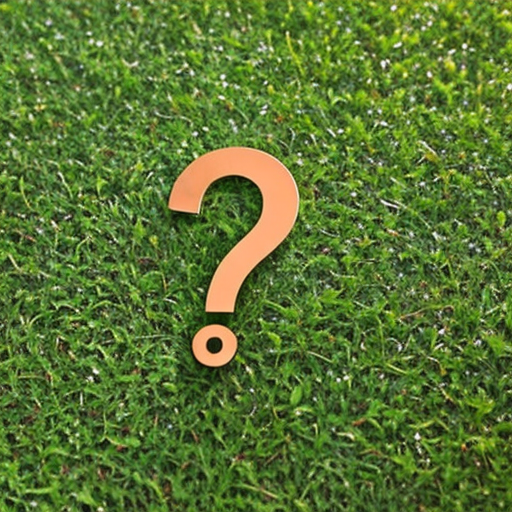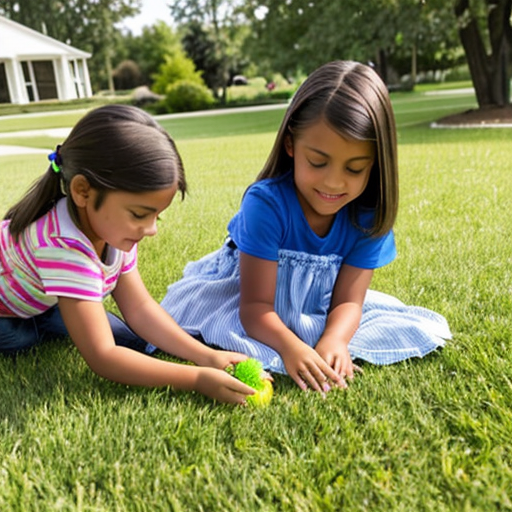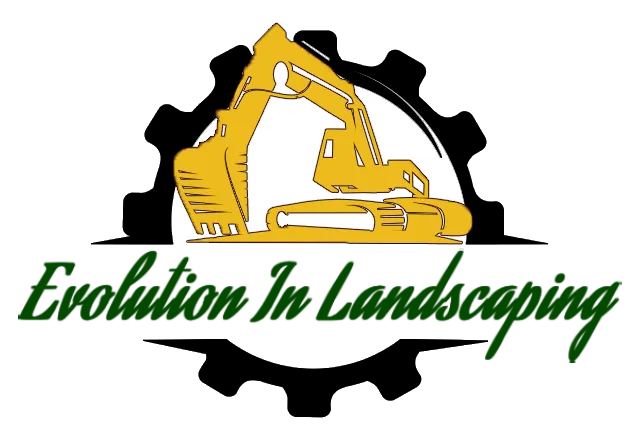Landscaping FAQ
What types of commercial landscaping services does Evolution in Landscaping offer?
Evolution in Landscaping provides a wide range of services, including lawn care, garden and turf maintenance, seasonal cleanups, tree and shrub care, irrigation installation and repair, landscape design, and installation of features like retaining walls and water features.
How often should commercial properties schedule landscaping and lawn care?
Regular maintenance, typically on a weekly or biweekly basis, is ideal for most commercial properties. However, scheduling can be customized to fit specific needs based on property size, landscape design, and seasonal requirements.
Do you offer customizable maintenance plans for commercial clients?
Yes, we create tailored maintenance plans to meet the unique needs of each client, addressing factors like property size, landscape complexity, and the desired level of upkeep.

How can professional landscaping improve the value of a commercial property?
Professional landscaping boosts curb appeal, attracts tenants or clients, and can even enhance employee satisfaction. Well-maintained landscapes contribute to a positive first impression and a well-kept property image.
Are your landscaping practices eco-friendly?
Absolutely. We prioritize sustainable practices, including water-efficient irrigation systems, soil conservation, and eco-friendly fertilizers, to minimize environmental impact.
Do you handle snow removal and seasonal transitions?
Yes, we provide seasonal services, including snow removal in the winter and seasonal landscaping adjustments to prepare properties for spring, summer, fall, and winter.
What kind of commercial properties do you work with?
We work with a variety of commercial properties, including office complexes, retail centers, industrial sites, apartment communities, and more.
Can you install and maintain irrigation systems for large commercial properties?
Yes, we specialize in both installing and maintaining irrigation systems for efficient water usage and effective landscape hydration, even on large commercial properties.
What are your options for hardscape installation, such as retaining walls and walkways?
Our team designs and installs custom hardscape features, including retaining walls, patios, walkways, and other elements to enhance functionality and aesthetic appeal.
How do I get a quote for commercial landscaping services?
You can request a quote by contacting us via phone, email, or through our website. We’ll assess your property and discuss your needs to provide an accurate, competitive estimate.
Lawn Aeration FAQ
What is lawn aeration, and why is it important?
Lawn aeration is the process of removing small cores of soil from the lawn to allow air, water, and nutrients to penetrate the soil, promoting deeper root growth and healthier grass. It is important because it can improve the overall health and appearance of the lawn.
How often should I have my lawn aerated?
The frequency of lawn aeration depends on factors such as soil compaction, the amount of foot traffic, and the type of soil. Typically, lawns should be aerated once or twice a year, preferably in the spring or fall.
What time of year is best for lawn aeration?
The best time for lawn aeration is when the grass is actively growing, which is typically in the spring or fall when soil temperatures are cooler.
How long does the lawn aeration process take?
The time it takes to aerate a lawn depends on the size of the lawn and the equipment used. Generally, it takes anywhere from 30 minutes to a few hours.
Will lawn aeration damage my lawn?
Lawn aeration will not damage the lawn if done correctly. However, it may leave small holes in the lawn temporarily.
What are the benefits of lawn aeration?
The benefits of lawn aeration include improved soil structure, better water and nutrient absorption, stronger root systems, and increased resistance to pests and diseases.
Can I aerate my lawn myself, or do I need a professional?
While it is possible to aerate your lawn yourself using a rented machine, it is recommended to hire a professional to ensure the process is done correctly and efficiently.
How much does lawn aeration cost?
The cost of lawn aeration varies depending on the size of the lawn, the equipment used, and the company performing the service. Typically, it can range from $50 to $200 or more.
Will lawn aeration make my lawn greener?
Lawn aeration can help improve the health of the lawn, which can result in greener and fuller grass over time.
How soon after lawn aeration can I mow my lawn?
It is recommended to wait at least a week after lawn aeration before mowing the lawn to allow the grass to recover.
What should I do to prepare my lawn for aeration?
Before aerating your lawn, it is important to water the lawn thoroughly to ensure the soil is moist enough to be effectively aerated. It is also recommended to mark any sprinkler heads or other obstacles on the lawn to avoid damaging them.
How does lawn aeration compare to other lawn care services?
Lawn aeration is one of the most important and beneficial lawn care services, as it directly improves the soil structure and overall health of the lawn. However, it is often done in conjunction with other services such as fertilization and overseeding.
Can lawn aeration help with drainage issues?
Yes, lawn aeration can help improve drainage by creating spaces in the soil for water to move through, reducing surface runoff and standing water.
Is there a warranty or guarantee for your lawn aeration services?
Some companies may offer warranties or guarantees for their lawn aeration services, but it is important to check with the specific company to determine their policies.
What sets your lawn aeration services apart from other companies?
Each company may have different factors that set them apart, such as their level of experience, equipment used, pricing, and customer service. It is important to research and compare different companies to find the best fit for your specific lawn care needs.
Lawn Seeding FAQ

What types of grass seed do you use for lawn seeding in Spokane?
We use a variety of grass seed blends, including Kentucky Bluegrass, perennial ryegrass, and fescue. Our expert team selects the best seed mix for your specific lawn and environmental conditions.
When is the best time to seed a lawn in Spokane?
The best time to seed a lawn in Spokane is in the late spring or fall, typically between August and September. This allows for cooler temperatures and ample rainfall, creating optimal growing conditions for the grass seed.
How often should I water my newly seeded lawn?
After lawn seeding, you should water your lawn daily for at least 15-20 minutes, keeping the soil moist. As the grass starts to grow, you can reduce watering to 2-3 times per week.
What type of fertilizer should I use after lawn seeding?
A high-phosphorus fertilizer is best after lawn seeding, as it promotes root growth and establishment. Our team can recommend the best fertilizer for your specific lawn.
How long does it take for the grass to grow after lawn seeding?
Grass typically takes 7-21 days to germinate after lawn seeding, depending on the grass type and growing conditions. It may take several weeks for the grass to become fully established.
Can I seed my lawn myself, or do I need a professional?
You can seed your lawn yourself, but professional lawn seeding services offer expert knowledge, equipment, and materials to ensure optimal results.
How much does lawn seeding in Spokane cost?
The cost of lawn seeding in Spokane depends on the size of your lawn and the specific services you require. Our team can provide a personalized quote based on your needs, but our most common packages are listed on the website.
Will you remove any existing grass or debris before seeding my lawn?
Yes, we will remove any existing grass or debris before lawn seeding to ensure optimal growing conditions for the new grass.
What is the best method for lawn seeding in Spokane?
We use a variety of lawn seeding methods, including broadcast seeding and hydroseeding, depending on your specific lawn and environmental conditions.
How do I maintain my newly seeded lawn after it has grown?
After your new grass has grown, you should maintain it with regular watering, mowing, and fertilization. Our team can provide guidance on the best lawn care practices for your specific grass type.
Is there a warranty or guarantee for your lawn seeding services?
Yes, we offer a satisfaction guarantee for our lawn seeding services. If you are not satisfied with the results, we will work to make it right.
Can lawn seeding help with weed control?
Yes, lawn seeding can help with weed control by creating a denser and healthier lawn that can better compete with weeds.
What should I do to prepare my lawn for seeding?
To prepare your lawn for seeding, you should mow your lawn short, remove any debris or weeds, and loosen the topsoil with a rake or tiller. Our team can provide additional guidance on lawn preparation.
What sets your lawn seeding services apart from other companies in Spokane?
Our lawn seeding services in Spokane are tailored to each customer’s unique needs, using the highest quality materials and equipment. We also offer expert knowledge and a satisfaction guarantee to ensure optimal results.
Fertilization FAQ
What is lawn fertilization, and why is it important?
Lawn fertilization is the process of applying nutrients to your lawn to help it grow healthy and strong. It is important because it provides the necessary nutrients for your grass to thrive, improves its appearance, and helps prevent weeds.
When is the best time to fertilize my lawn?
The best time to fertilize your lawn is in the spring and fall, when the grass is actively growing. It’s important to avoid fertilizing during extreme weather conditions, such as heat waves or droughts.
Can I fertilize my lawn myself, or do I need a professional?
You can fertilize your lawn yourself, but it’s recommended to consult with a professional to ensure proper application and prevent damage to your lawn.
How much does lawn fertilization cost?
The cost of lawn fertilization varies depending on the size of your lawn and the method of application. Typically, a professional service will charge between $50 to $200 per application.
Will lawn fertilization make my lawn greener?
Yes, lawn fertilization can make your lawn greener and healthier by providing the necessary nutrients for growth.
What should I do to prepare my lawn for fertilization?
Before fertilization, it’s recommended to mow your lawn and remove any debris or weeds. It’s also important to water your lawn thoroughly to help the fertilizer penetrate the soil.
How does lawn fertilization compare to other lawn care services?
Lawn fertilization is one of the most important lawn care services as it provides the necessary nutrients for your grass to grow healthy and strong. However, other services such as lawn aeration and seeding may also be necessary to maintain a healthy lawn.
Can lawn fertilization help with weed control?
Lawn fertilization can indirectly help with weed control by promoting a healthy lawn that can better compete with weeds. However, weed control may require additional services such as herbicide application.
Is there a warranty or guarantee for your lawn fertilization services?
Many lawn care services offer a guarantee or warranty on their fertilization services. It’s important to review the terms of the agreement before scheduling a service.
What sets your lawn fertilization services apart from other companies?
Our lawn fertilization services use high-quality fertilizers and are tailored to the specific needs of your lawn. We also provide expert advice on lawn care and maintenance to help you achieve the best results.
Lawn Thatching FAQ
What is lawn thatching, and why is it important?
Lawn thatching is the process of removing the layer of dead grass, leaves, and other debris that accumulates on the surface of a lawn over time. It is important because this layer, also known as thatch, can prevent air, water, and nutrients from reaching the roots of the grass, which can lead to poor lawn health.
When is the best time to have my lawn thatched?
The best time to have your lawn thatched is during the active growing season for your grass. In most areas, this is during the spring or fall.
How often should I have my lawn thatched?
The frequency of lawn thatching depends on the amount of thatch that accumulates on your lawn. Most lawns only need to be thatched once a year or every other year.
How long does the lawn thatching process take?
The lawn thatching process typically takes a few hours to a full day, depending on the size of the lawn and the equipment used.
Will lawn thatching damage my lawn?
When done correctly, lawn thatching will not damage your lawn. However, excessive thatching or using improper equipment can damage the grass and roots.
What are the benefits of lawn thatching?
The benefits of lawn thatching include improved air, water, and nutrient flow to the roots of the grass, which can lead to a healthier and more vibrant lawn.
Can I thatch my lawn myself, or do I need a professional?
You can thatch your lawn yourself with the proper equipment and knowledge. However, it is recommended to hire a professional to ensure that the process is done correctly and without damaging your lawn.
How much does lawn thatching cost?
The cost of lawn thatching varies depending on the size of the lawn and the extent of the thatch buildup. It is best to get a quote from a professional lawn care service.
Will lawn thatching make my lawn greener?
Lawn thatching can improve the health of your lawn, which can lead to a greener and more vibrant appearance.
How soon after lawn thatching can I mow my lawn?
You should wait at least a few days after lawn thatching before mowing your lawn to allow the grass to recover.
What should I do to prepare my lawn for thatching?
Before thatching your lawn, you should mow the grass to a shorter length than usual and remove any debris or objects from the lawn.
How does lawn thatching compare to other lawn care services?
Lawn thatching is one of several important lawn care services that can help improve the health and appearance of your lawn. It is often performed in conjunction with other services such as lawn aeration and fertilization.
Can lawn thatching help with drainage issues?
Thatching can help improve drainage by allowing water to penetrate the soil more easily.
Is there a warranty or guarantee for your lawn thatching services?
Most lawn care services offer a guarantee or warranty for their work. It is best to check with the service provider for their specific policies.
What sets your lawn thatching services apart from other companies?
Our lawn thatching services are performed by experienced professionals using top-of-the-line equipment to ensure that the process is done correctly and without damage to your lawn. We also offer a satisfaction guarantee for all of our services.
